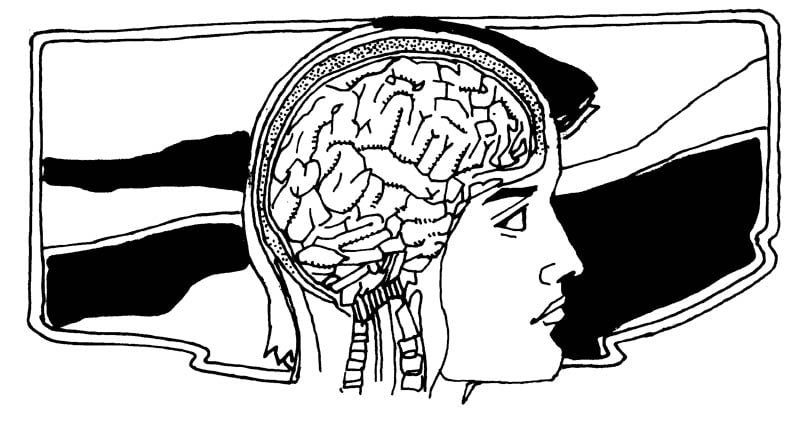Why are some people’s minds sharp, energetic and overflowing with creative ideas and other people’s intellects less than dazzling? There are two main reasons: the demands made by circumstances and the pull of mental habits.

A stonemason doesn’t need to go to the gym to build up his arms. In the course of his work of mixing mortar and hauling bricks, his arms are naturally strengthened. Similarly, an accountant doesn’t need to go to school to tighten up his arithmetic skills. Because he is constantly dealing with numbers, his mathematics muscles are kept trim.
If your circumstances don’t challenge your thinking muscles, you don’t get the stimulation you need to keep fit. However, if you are often put in situations where you need to think clearly and energetically, your muscles become stronger and more responsive. Perhaps this idea is summarized best in the old saying.
A habit is simply the tendency to do something without having to think about it. Like it or not, your whole life, from the way you brush your teeth to the way you strive towards long-term goals, depends largely on your personal repertoire of automatic tendencies. Could you imagine having to relearn how to brush your teeth every day?
Your mental life—what you notice, how much you pay attention, how well you learn, how you approach and deal with problems, what you remember, what you worry about, what you enjoy, what you think about all day long—is also largely guided by habits.
The key to mental fitness is to develop a good set of habits that help you get to where you want to go. Mentally fit people can exert themselves whenever the word works and why things happen the way they do. They enjoy a wide works and why things happen the way they do. They enjoy a wide range of interest. They also know how to change habits through conscious, deliberate action and can form effective tendencies, such as the habit to daydream less, or to weigh decisions more carefully, or to take more risks. Together, these good habits encourage the mind to become more responsive and ultimately to develop the most important habit of all: the habit to develop good habits.
What makes a Good Mental Exercise
Solving a crossword puzzle—preparing for an exam—conducting a television interview—improving on stage—studying a difficult text cooking a gourmet dinner—making up a chewing gum fingle—visualizing a friend’s face—recalling the last time you had ice cream—reciting the national anthem backwards—naming your elementary school teachers—continuing the sequence: 2, 4, 8, 16, as long as you can—learning a nerve language—telling a convincing lie—programming a computer—figuring out how a toaster works—drawing a realistic landscape— changing a bad mood into a good mood contemplating infinity—writing a docudrama—recalling an important conversation you had last month—asking your boss for a raise—finger Painting—controlling your temper—reorganizing your bedroom—questioning authority—designing a better mousetrap—explaining why the sky is blue to a four-year-old—negotiating a contract—bluffing in a poker game—playing a video game—searching for truth.
How do you get mentally in shape? Mental exercise, like physical exercise, involves movement. For your body, movement is running, swimming, playing basketball, lifting weights, or stretching—any activity that makes your muscles expand and contract. For your mind, movement is progression of thought, a kind of inner travel from premise to conclusion, from problem to solution, from question to answer, from answer to question, from one state of mind to another state of mind. Whenever you actively apply your mind to some task and intentionally manipulate your mental resources, you move your mental muscles.
In the broad definition of the term, an exercise is an activity performed for the purpose of improving a skill, bettering yourself, or training your faculties. Virtually any task that requires active attention—such as figuring out a puzzle, working through a business problem, or sitting quietly and collecting your thoughts—can be a mental exercise.
Perhaps more important than what you do is how you do a good technique is essential. A gymnast improves by repeating a move over and over, making slight adjustments, Until it’s just right. Through this repetition and feedback, the gymnast’s muscles become more responsive. Similarly, to improve your mental muscles, you practice thinking. In your mind, you repeat a task until you get your thinking muscles to do what you want them to do.
A good mental exercise is an appointment with yourself, a time to turn your focus inward and challenge your mind. It’s a way to channel your mental energy into constructive thought. Whether you want to work hard to reach peak mental performance, or to stretch out a bit to become more flexible, good old-fashioned mental exertion can enhance your creativity, give you a sense of accomplishment, and improve your state of mind.
